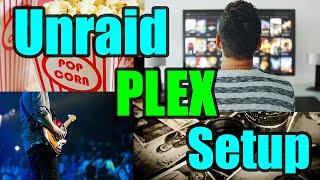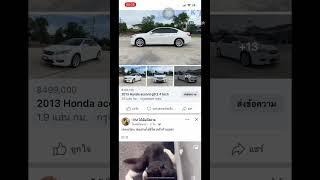
What is the difference between compliance and voluntary carbon markets? - Abatable
In this series we look at some of the core concepts and principles in carbon offsetting. You can see some of the high-quality carbon projects we support on our website:
https://www.abatable.com/carbon-projects?utm_source=youtube.com&utm_medium=video&utm_campaign=marketplace&utm_content=ep6
Hi, I am Maria Eugenia Filmanovic and I am a a Co-founder at Abatable.
Today, there are multiple carbon pricing initiatives globally - spanning from the governments’ carbon tax schemes taxing emissions of large emissions sectors, corporations’ use of internal cost of carbon in decision making, carbon cost abatement curves, as well as more traditional market-based carbon initiatives.
If looking at market-based approaches, there are two main initiatives: the compliance and the voluntary carbon markets. Today we will look to understand the differences between two systems.
- Compliance carbon markets or Emission trading schemes, like the European Union ETS, are designed as a closed (“invite-only”) trading schemes where emitters, typically in large emission sectors such industrial, fossil fuel sectors, are mandated by the government to be trading carbon allowances. Emitters are typically allocated a set number of carbon allowances on day 1 (either for free or through an auction) based on their emissions’ profile, and they are then invited to trade surplus and deficit of carbon allowances up to a total cap every year. The total number of allowances allocated is by design capped and decreasing in a way that allows carbon price to go up and incentivizes alternative decarbonization paths for companies within the scheme.
- Voluntary carbon markets, on the contrary, allow organisations to purchase carbon credits generated from emission reductions and sequestration projects on a voluntary basis. In this market, supply and demand are not constrained by design. Supply of carbon credit certificates, or offsets, can, in theory, grow unlimited, however current market developments suggest that supply of carbon credits is not able to grow as fast as demand in the short-term, which may lead to the price of carbon offsets within voluntary markets to increase. Little transparency is currently available on the price of carbon credits as most transactions still occur over-the-counter (OTC) markets or bilaterally between corporate buyers, developers and/or intermediaries.
At Abatable, we help corporates and impact investors procure carbon offsetting projects within the voluntary carbon markets and help them navigate the complexity and opportunities in this market.
To learn more about Abatable’s solutions, please visit our website in the link below. https://www.abatable.com/carbon-projects?utm_source=youtube.com&utm_medium=video&utm_campaign=marketplace&utm_content=ep6
https://www.abatable.com/carbon-projects?utm_source=youtube.com&utm_medium=video&utm_campaign=marketplace&utm_content=ep6
Hi, I am Maria Eugenia Filmanovic and I am a a Co-founder at Abatable.
Today, there are multiple carbon pricing initiatives globally - spanning from the governments’ carbon tax schemes taxing emissions of large emissions sectors, corporations’ use of internal cost of carbon in decision making, carbon cost abatement curves, as well as more traditional market-based carbon initiatives.
If looking at market-based approaches, there are two main initiatives: the compliance and the voluntary carbon markets. Today we will look to understand the differences between two systems.
- Compliance carbon markets or Emission trading schemes, like the European Union ETS, are designed as a closed (“invite-only”) trading schemes where emitters, typically in large emission sectors such industrial, fossil fuel sectors, are mandated by the government to be trading carbon allowances. Emitters are typically allocated a set number of carbon allowances on day 1 (either for free or through an auction) based on their emissions’ profile, and they are then invited to trade surplus and deficit of carbon allowances up to a total cap every year. The total number of allowances allocated is by design capped and decreasing in a way that allows carbon price to go up and incentivizes alternative decarbonization paths for companies within the scheme.
- Voluntary carbon markets, on the contrary, allow organisations to purchase carbon credits generated from emission reductions and sequestration projects on a voluntary basis. In this market, supply and demand are not constrained by design. Supply of carbon credit certificates, or offsets, can, in theory, grow unlimited, however current market developments suggest that supply of carbon credits is not able to grow as fast as demand in the short-term, which may lead to the price of carbon offsets within voluntary markets to increase. Little transparency is currently available on the price of carbon credits as most transactions still occur over-the-counter (OTC) markets or bilaterally between corporate buyers, developers and/or intermediaries.
At Abatable, we help corporates and impact investors procure carbon offsetting projects within the voluntary carbon markets and help them navigate the complexity and opportunities in this market.
To learn more about Abatable’s solutions, please visit our website in the link below. https://www.abatable.com/carbon-projects?utm_source=youtube.com&utm_medium=video&utm_campaign=marketplace&utm_content=ep6
Комментарии:
Abatable Net Zero Carbon Offset Platform
Ron Gerber with Angelbeat Seminars
ขั้นตอนการเป็นนายหน้าขายรถยนต์ ตอนที่ 1
KN77 Smartcar
Friedman & Ranzenhofer Buffalo DWI Attorneys
Friedman & Ranzenhofer, PC
Tinker Pearce Great sword of War
Roy Stuart
James Arthur - Emily (Official Lyric Video)
James Arthur


























